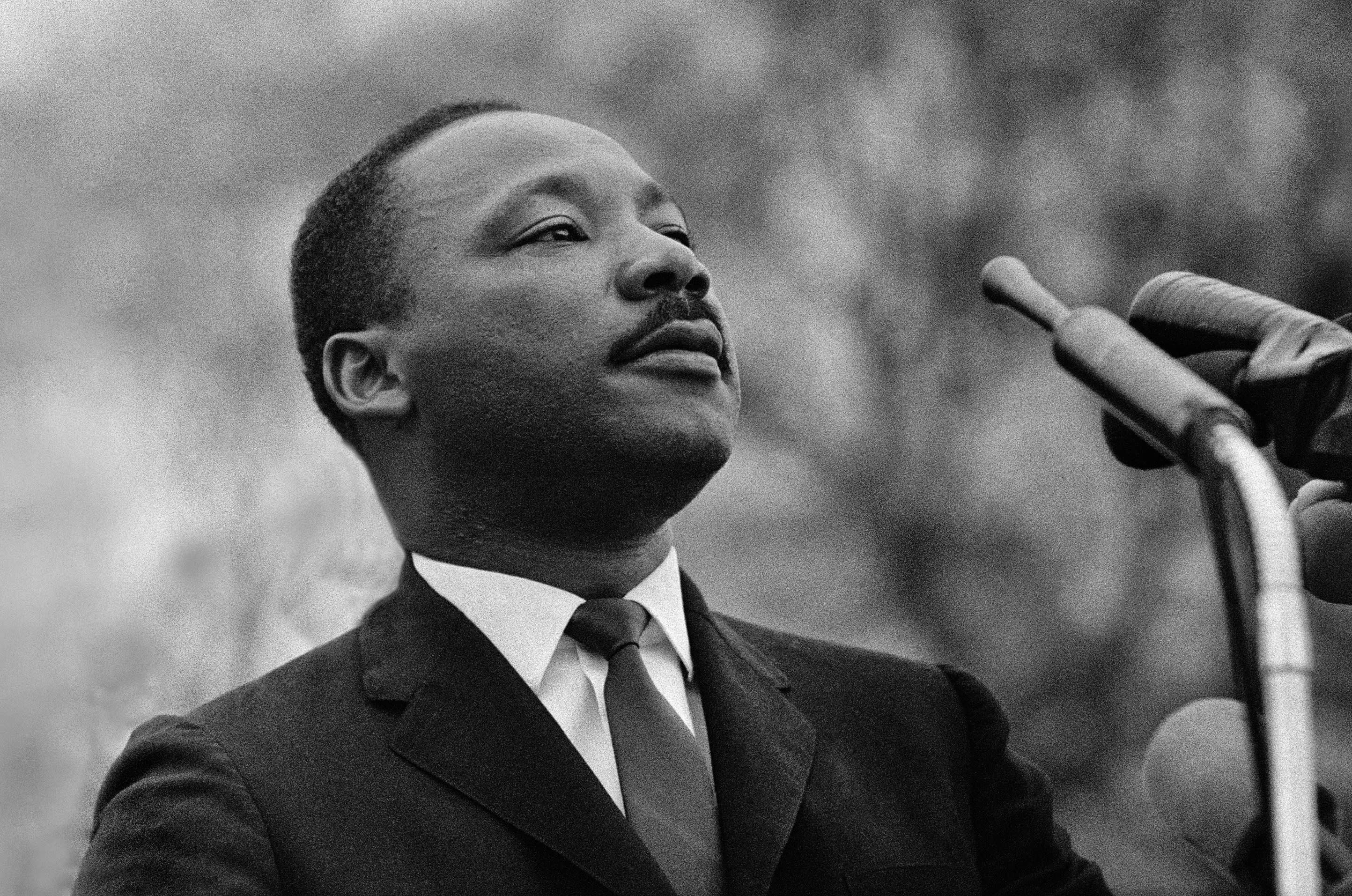
Martin Luther King Jr. Day is more than a day of celebration of the civil rights leader.
As King’s wife Coretta Scott wrote in The Washington Post in 1983, “Let this holiday be a day of reflection, a day of teaching non-violent philosophy and strategy, a day of getting involved in non-violent action for social and economic progress.”
As a professor and dean of leadership development and inclusion Northwestern University’s Kellogg School of Management, I believe King’s words are as powerful today as when he first said them.
Here are just a few that I hope will inspire positive change and development in the world:
1. “Lightning makes no sound until it strikes.”
From “Why We Can’t Wait” (1964)
Apathy cannot be tolerated by an individual, a leader or an organization. If you see something happening, don’t wait for the negative ramifications to occur. Respond to the issue and act. If nothing is said or done, then silence connotes complicity — and that’s what people remember.
2. “Every man must decide whether he will walk in the light of creative altruism or the darkness of destructive selfishness.”
From “Three Dimensions of a Complete Life” (1960)
What determines longevity is the creation of quality and value. Make the work you do a force for good, not greed. Influence the communities where you serve, even if those impacts are not immediately obvious.
3. “We must use time creatively, in the knowledge that the time is always ripe to do right.”
From “Letter from a Birmingham Jail” (1963)
We often believe that we have more time at our disposal than we really do, which keeps us from addressing issues immediately or tempts us into avoiding a topic altogether. We must push ourselves and our organizations to maximize every second, every minute, every day.
4. “The function of education is to teach one to think intensively and to think critically. Intelligence plus character — that is the goal of true education.”
From “The Purpose of Education” (1948)
We live in a fast-paced world, and those who are not committed to learning will be left behind. This means having the courage to face uncomfortable conversations that will foster understanding and ultimately change the world for the better.
5. “Life’s most persistent and urgent question is, what are you doing for others?“
From sermon in Montgomery, Alabama (1957)
The core of servant leadership is to seek to serve others, and to add value to their lives. That’s the ultimate benchmark for measuring the value of an organization and its leadership.
6. “We cannot walk alone.”
From “I Have a Dream” (1963)
Leadership is a collaborative endeavor — it doesn’t happen in isolation or only from the top. Leaders must strive not just to have a diverse team, but an inclusive one where the unique perspectives are truly leveraged.
7. “People fail to get along because they fear each other; they fear each other because they don’t know each other; they don’t know each other because they have not communicated with each other.”
From “Advice for Living” (1958)
Trust is the cornerstone of leadership and organizational action. One of the key elements of trust is empathy — the psychological safety that’s created when we truly get to know others.
8. “If you can’t fly, then run. If you can’t run, then walk. If you can’t walk, then crawl. But whatever you do, you have to keep moving forward.”
From speech at Barratt Junior High School in Philadelphia (1967)
Great leaders and great organizations are never static. Rather than accept the status quo and see how long the organization can stay where it is, they push people forward. It takes resilience, which is all about the willingness to do the hard things.
9. “We must believe that a prejudiced mind can be changed, and that man, by the grace of God, can be lifted from the valley of hate to the high mountain of love.”
From “The Death of Evil Upon the Seashore” (1956)
All of us have beliefs — some serve us well, some do not. Prejudice means pre-judgment. And to drop our prejudices, we must be willing to step outside of our beliefs and seek to understand others.
Bernard Banks is the Associate Dean for Leadership Development and Inclusion and a Clinical Professor of Management at Kellogg School of Management at Northwestern University. He was also a faculty member in the Department of Behavioral Sciences & Leadership at West Point and a Brigadier General in the U.S. Army.
Don’t miss:


